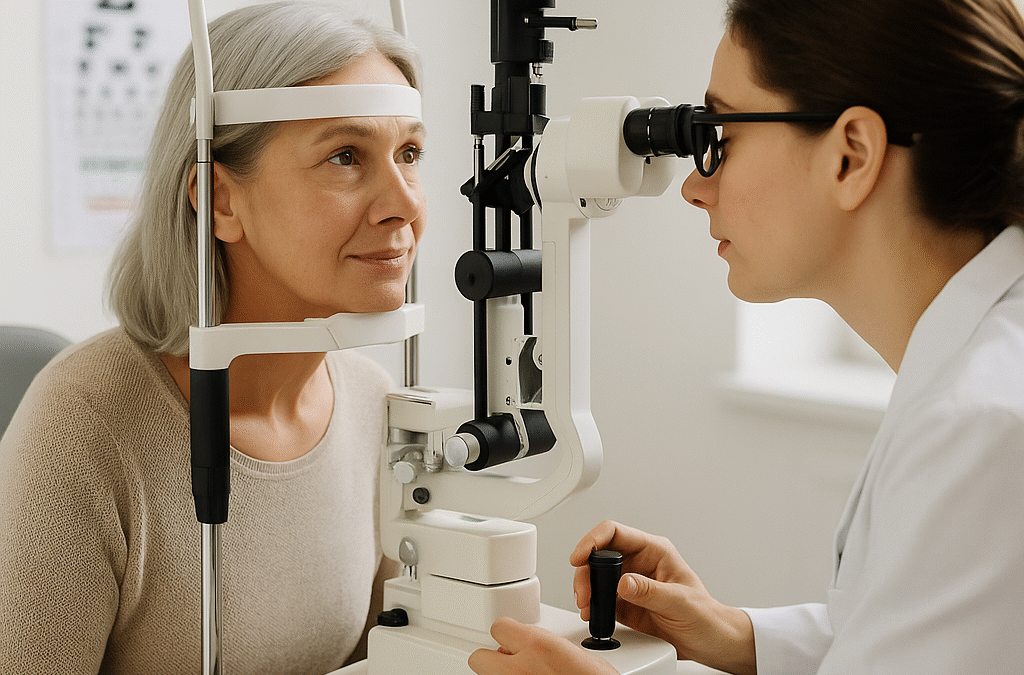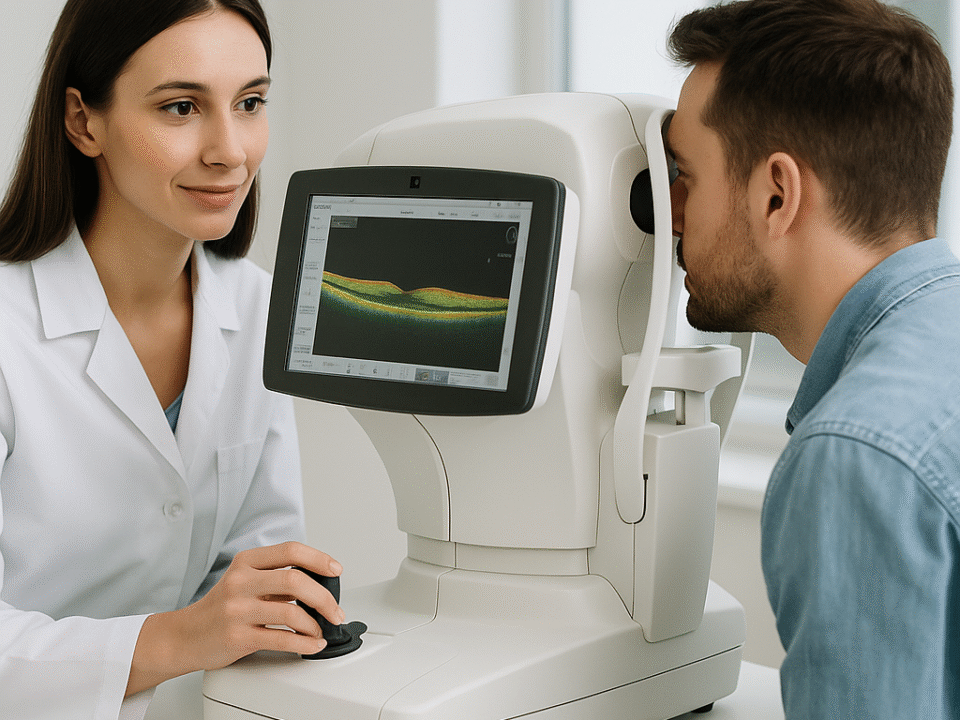Vision and Aging: How to Keep Your Eyes Healthy After 40

Comprehensive Eye Exams: Why They’re Essential for Long-Term Vision Health
October 21, 2025Your eyes change as you age — it’s natural. After the age of 40, many people start noticing differences in how clearly they see objects up close, how quickly their eyes adjust to light, or how tired they feel after reading or using digital screens.
While these changes are part of the natural aging process, maintaining good eye health doesn’t have to be difficult.
At Parham Optical, we specialize in eye exams for adults over 40 across Aurora, Newmarket, and Richmond Hill, helping you preserve your vision and quality of life for decades to come.
How Aging Affects Your Vision
As you enter your 40s and beyond, your eyes undergo subtle but significant changes. The most common age-related vision issues include:
1. Presbyopia (Age-Related Farsightedness)
Presbyopia is one of the first changes people notice after 40. You might find yourself holding your phone farther away or needing more light to read fine print.
This occurs because the eye’s lens becomes less flexible over time, making it harder to focus on close objects.
Solutions include reading glasses, progressive lenses, or multifocal contact lenses — all available at Parham Optical.
2. Dry Eyes
As tear production decreases with age, many adults experience dryness, irritation, or a gritty sensation in their eyes.
Environmental factors, hormonal changes, and extended screen time can worsen symptoms.
We offer advanced dry eye treatments in Aurora, including moisturizing drops, tear film analysis, and lifestyle adjustments.
3. Increased Risk of Eye Diseases
Aging also raises the risk of conditions such as:
Glaucoma – increased pressure damaging the optic nerve.
Cataracts – clouding of the eye’s lens, causing blurry vision.
Macular degeneration – damage to the central retina, affecting sharpness and color vision.
Diabetic retinopathy – damage to blood vessels in the retina caused by diabetes.
Routine comprehensive eye exams can catch these conditions early — before vision loss occurs.
👁️ Take control of your eye health after 40.
Book a comprehensive eye exam at Parham Optical in Aurora, proudly serving Newmarket and Richmond Hill.
👉 Schedule Your Appointment Today
Tips for Keeping Your Eyes Healthy After 40
1. Get Regular Eye Exams
Even if you don’t have symptoms, you should visit your optometrist at least once every year after 40.
Many eye conditions develop silently and can be treated effectively when detected early.
2. Eat a Vision-Friendly Diet
Foods rich in vitamins A, C, E, and zinc, along with omega-3 fatty acids, help protect your retina and slow age-related vision decline.
Incorporate leafy greens, carrots, citrus fruits, nuts, and fish like salmon into your meals.
3. Wear Sunglasses Year-Round
UV exposure accelerates eye aging and increases the risk of cataracts.
Choose sunglasses with 100% UVA and UVB protection — available in stylish designs at Parham Optical.
4. Manage Chronic Conditions
Diseases like diabetes, hypertension, and high cholesterol can damage blood vessels in the eyes.
Maintaining healthy blood sugar and blood pressure levels can significantly reduce your risk of vision complications.
5. Give Your Eyes a Break from Screens
Digital screens can worsen eye strain and dryness.
Follow the 20-20-20 rule — every 20 minutes, look 20 feet away for 20 seconds — to relax your eye muscles.
6. Stay Hydrated and Rest Well
Proper hydration supports tear production, while quality sleep helps your eyes repair overnight.
If you wake up with dry or tired eyes, try using a humidifier or lubricating drops recommended by your optometrist.
When to See an Optometrist Immediately
Contact your eye doctor if you notice:
Sudden blurred or double vision
Flashes of light or floaters
Loss of peripheral (side) vision
Pain or redness in your eyes
These may be early signs of retinal detachment or other serious conditions that require immediate care.
🕶️ Keep your vision strong and your eyes healthy for years to come.
Visit Parham Optical in Aurora for your next comprehensive eye exam — trusted by families across Newmarket and Richmond Hill.
📞 Book Online at parhamoptical.ca
Frequently Asked Questions (FAQs)
1. How often should I get an eye exam after 40?
Once every 12 months is recommended, even if you have no symptoms.
2. What are the best glasses for reading and computer use?
Progressive lenses or blue-light filtering glasses are ideal for multitasking between screens and print.
3. Does aging always cause vision loss?
Not necessarily. Many changes are manageable with proper eyewear, nutrition, and regular care.
4. Are eye exams covered by OHIP after 40?
Not automatically — OHIP covers exams for children under 19 and adults over 65. However, many insurance plans cover one annual exam.
5. Can lifestyle changes really help prevent eye diseases?
Yes. A healthy diet, sun protection, regular exercise, and not smoking can significantly slow age-related vision decline.




